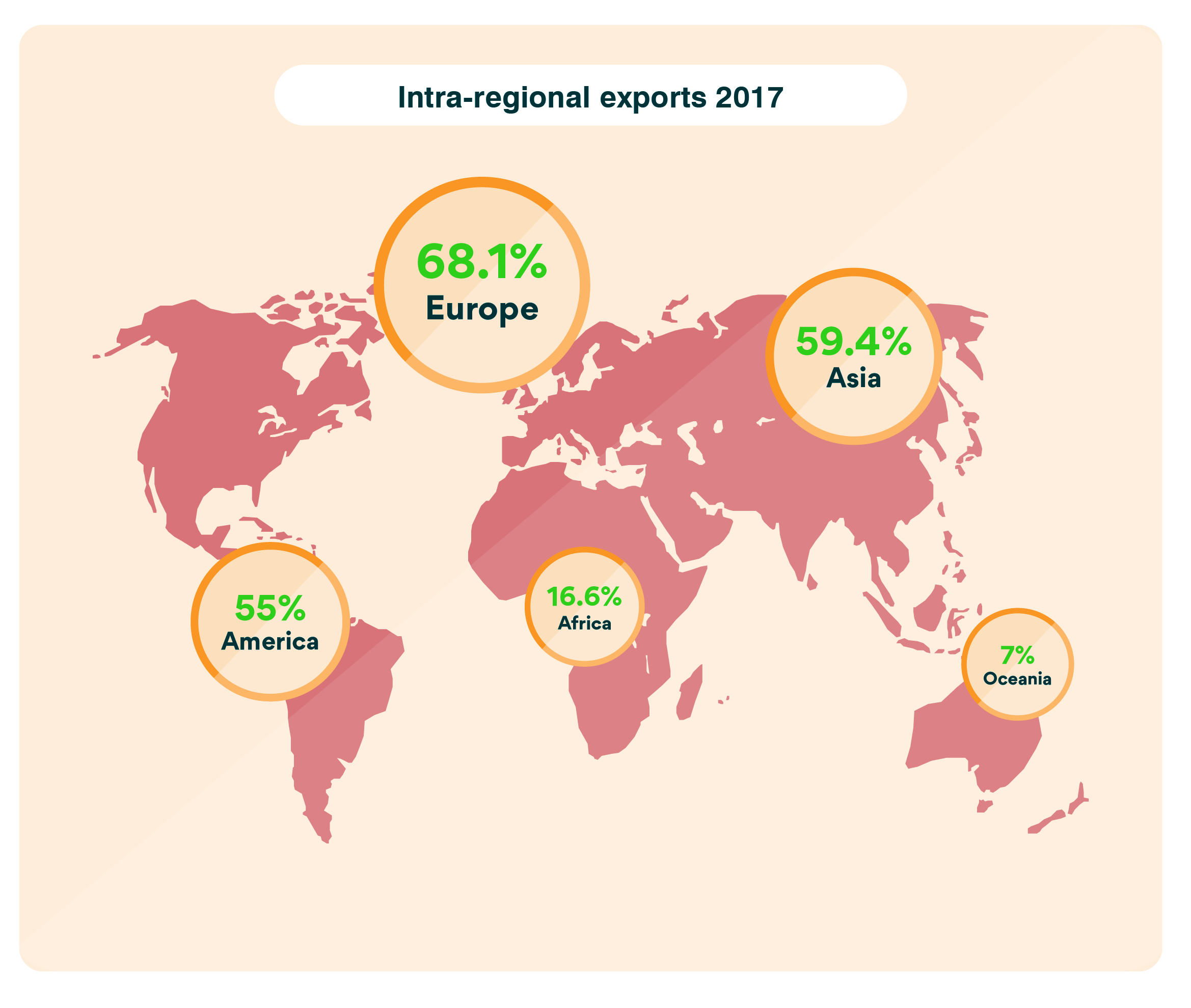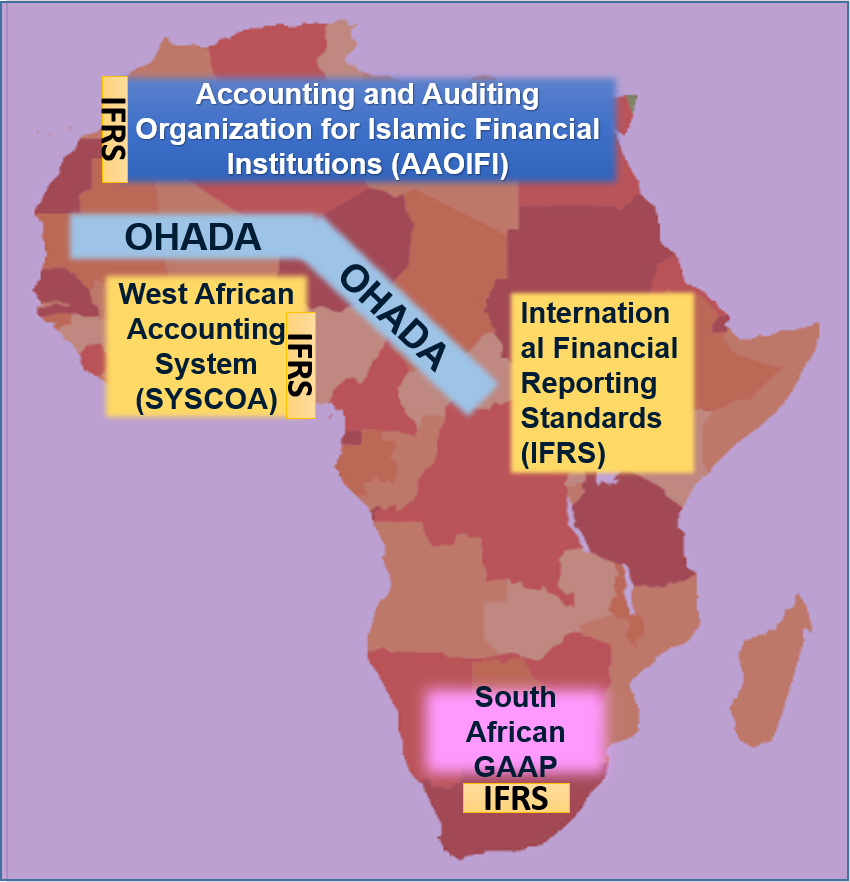Harmonized accounting standards can unlock AfCFTA opportunities
Edward Kwaku, London, UK
July 31, 2024
Accounting professional associations expect accounting standards to play a dynamic role in the development of the African Free Continental Trade Agreement (AfCFTA). In November 2022, professional accounting associations published a survey entitled: ‟Journey to AU2063: Professional Accountants Empowering the AfCFTA Agreement”1, that examined the role of accountants in overcoming trade barriers. They interviewed 1,600 practitioners in 22 professional accountancy organizations across Africa. The African Free Continental Trade Agreement (AfCFTA) is an agreement between 54 African nations to open borders and liberalize intra-Africa trade. The trade agreement stands to benefit Africa’s 1.2 billion population and generate a combined gross domestic product (GDP) of US$3.4 trillion2.
The study found that accountants have the skills and human resources to contribute to hasten the implementation of the agreement. The report states that the accounting profession has the network to connect stakeholders. It says that policymakers, institutions, business, professional services need accounting to gather financial data. According to the survey, a harmonized accounting system in Africa will promote consolidation of multinational financial statements by ‟eliminating contradictions and fostering complementarity”.
Africa Intra Regional Trade has not changed since 2017

Source: macmap.org/
The landscape
Companies involved in intra-African trade must navigate multiple accounting standards. Countries that have a domestic stock market have adopted the International Financial Reporting Standards (IFRS), but only four listed companies. Non-listed companies involved in cross-border trade must comply with different national accounting standards. Disparities also exist between regional economic communities. For example, accounting standards for French-speaking Africa use the Organization of Business Law in Africa (OHADA). OHADA is a set of accounting, corporate laws, and arbitration rules. In other parts of Africa, countries use domestic accounting standards for non-listed companies. This is the case for Ethiopia, Mozambique, and Angola. In this same area, North Africa has unique accounting based on by Islamic finance principles.
Taxation is another stumbling block on the road to AfCFTA. Double taxation is a risk companies must consider during cross border trade. Customs valuation procedures are different, and this leads to different computed values for taxation. The United Nations Economic Commission for Africa (ECA) argues that a common approach to accounting standards, professional qualification, and regulation will promote financial integration3.
Major Accounting Standards in Africa

Initiatives
AfCFTA and the GAAP
The AfCFTA is working on the harmonization standards that facilitate (or hinder) intra-African trade. A modern “Generally Accepted Accounting Principles (GAAPs)” is an urgent goal for AfCFTA. The PAFA survey advocates the adoption of relevant international standards, such as the International Financial Reporting Standard (IFRS) for small and medium-sized enterprises (SMEs). It also calls for the adoption of the International Sustainability Standards Board (ISSB) standards to build trust and investor confidence. The resulting business climate the PAFA says will open access to alternative sources of finance. The AfCFTA has developed harmonized standards for the rule of origins and for customs. These standards are mandatory but face implementation delays in individual countries.
The UN Economic Commission for Africa (ECA)
The ECA says that harmonization of standards across Africa is vital to the realization of trade and industrialization potential of the AfCFTA4. In 2020, a report by the ECA identified products and value chain that show that harmonization of standards is possible and efficient. The analysis covers the six regional economic communities in Africa. It found common accounting practices in agro-processing, extractive and manufacturing. The service, banking, insurance, and utilities sectors also exhibited traits that are amenable to a harmonized accounting system.
Pan African Federation of Accountants
The Pan African Federation of Accountants (PAFA)5 contributes to the development of finance and accounting through a wide range of activities. PAFA recommends the development of alternative financing methods; an area where the profession believes will benefit the AfCFTA. PAFA’s members and associates represent over 123,000 professional accountants on the continent.
In December 2022, PAFA calls on professional accountancy organizations in Africa to lead change in four key areas. The first is sustainability reporting and assurance, where accountants can enhance reporting on the impact of business activities on the environment and society. The second area tackles governance, transparency, and accountability in the public sector. In these fields, accountants have the insights to inform public policy and serve as neutral advisors to stakeholders. The third area seeks to promote the quality of accountancy services6.
PAFA reports that African countries lack a quality review system, and those that do need to be updated to meet new standards. Fourth, PAFA reiterates that corruption and related economic crime, such as money laundering, bribery, tax evasion and fraud, are obstacles to economic and human development. The organization says that the accountancy profession is well-placed in business, the public sector, and society to help fight these crimes. Progress in these four areas is an essential prerequisite for the acceleration of the AfCFTA project, PAFA concluded in this call for action7.
Afrexim Bank and the PAPSS
The African Export and Import Bank (Afrexim) has developed the Pan-African Payment and Settlement System (PAPSS). The PAPSS is neither an accounting system nor a standard, but a payment platform which settles trade in African domestic currencies without the hassle of currency conversion.
On January 13th, 2022, the African Export-Import Bank (Afreximbank) and AfCFTA launched the Pan-African Payment and Settlement System (PAPSS) to facilitate cross-border payments in local currencies between African markets. PAPSS is now one of the key operational instruments of the AfCFTA. It has a centralized processing, clearing, and settling system for cross border trade and also payments among African countries.
Importers and exporters will use trade data generated from the PAPPS to produce accounting and financial information. This means that the PAPPS will facilitate the comparability of financial data and also of benchmarking. Accounting standards are therefore a vital part of the AfCFTA architecture.
Major Accounting Standards in Africa

Related Articles
BIBLIOGRAPHY
1❩The Pan African Federation of Accountants (PAFA) and Association of Chartered Certified Accountants (ACCA),
2❩AU-AfCFTA (2022): About the AfCFTA - https://au-afcfta.org/about/?_ga=2.257844811.1526648711.1661288106-1566193311.1661288106
3❩United Nations Economic Commission for Africa – ECA (2021): Governing the African Continental Free Trade Area–Regional Economic Communities Interface - https://repository.uneca.org/handle/10855/46717
4❩https://www.uneca.org/storys/harmonization-standards-across-africa-vital-realization-trade-and-industrialization-potential
5❩Pan African Federation of Accountants Call to Action December 2022
6❩See also International Monetary Fund (2024): How accountants can help save public finances - https://www.imf.org/en/Publications/fandd/issues/Series/Analytical-Series/how-accountants-can-help-save-public-finances
7❩PAFA (2022): Pan African Federation of Accountants Call to Action (December 2022)
